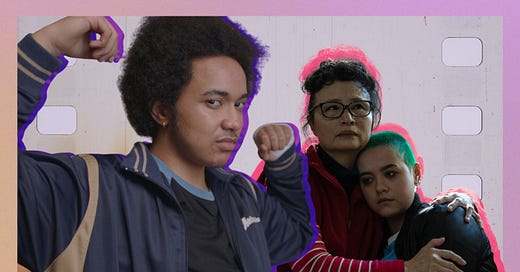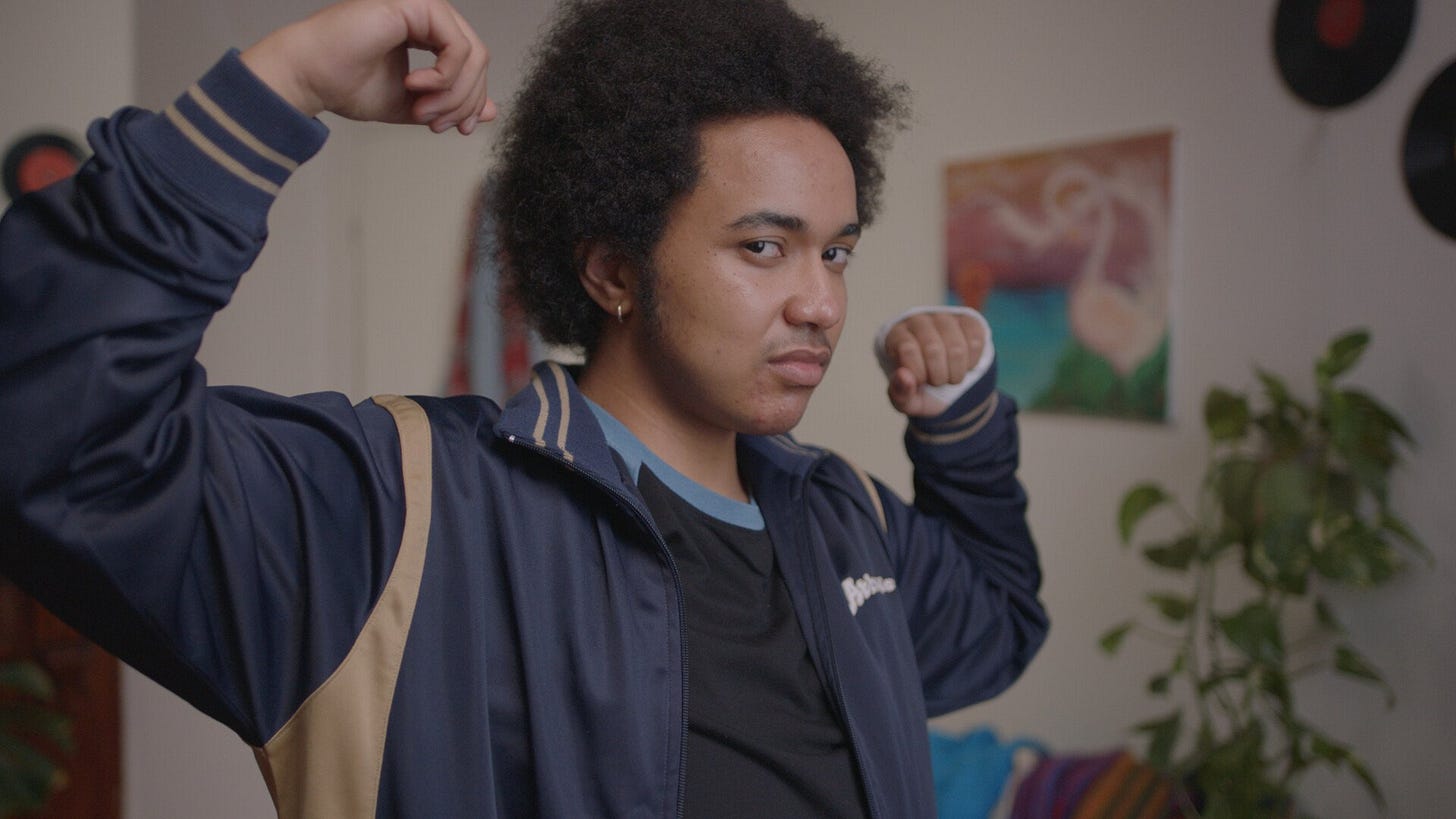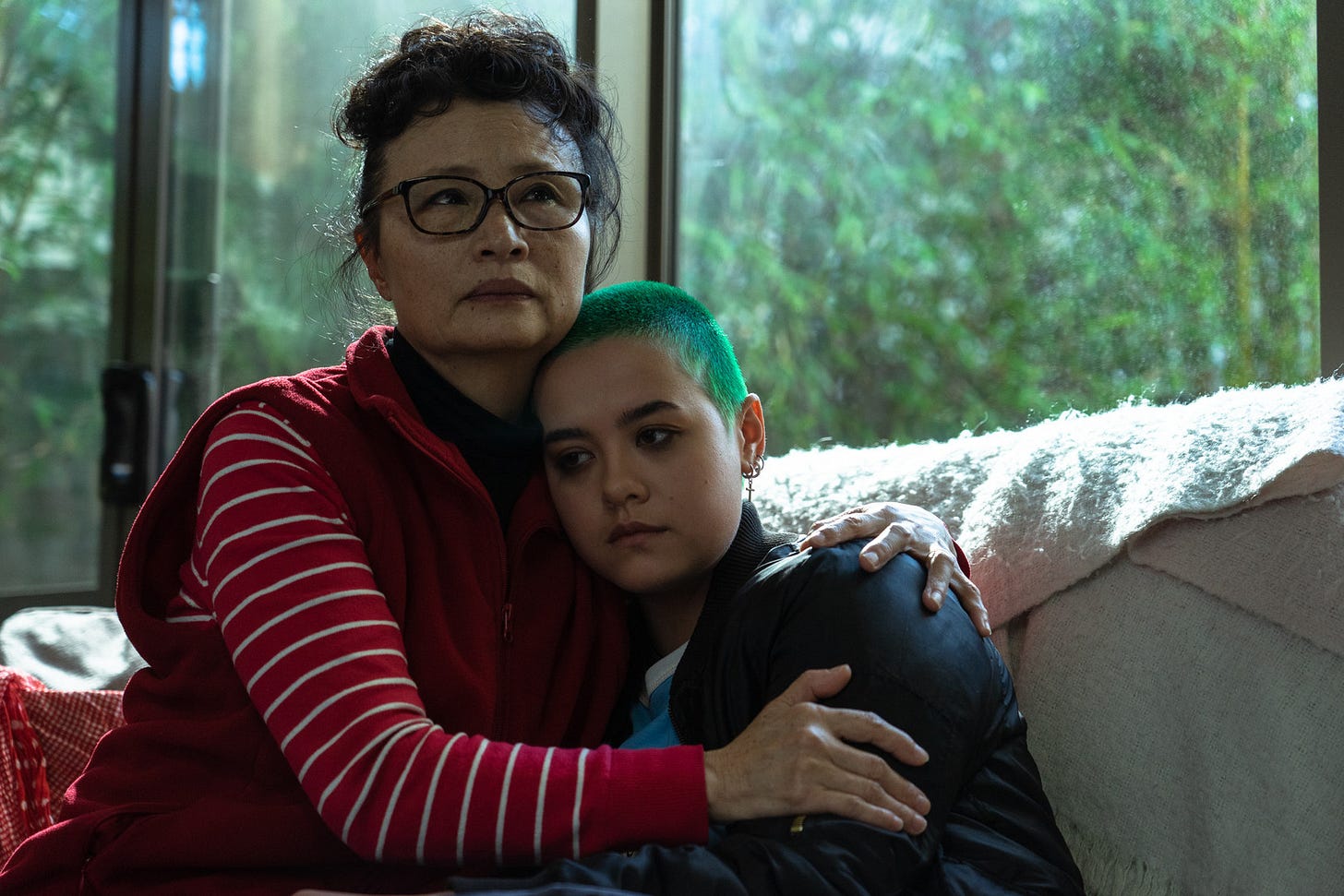Rebellion and representation: Talking to the filmmakers of the 10th anniversary of TILDE, the Melbourne Trans and Gender Diverse Film Festival
"We don’t want to be put into binaries or a love story that basically fits heterosexual conventions.”
The many, many downsides of lockdowns have been aired extensively, but for one emerging filmmaker and actor, Victorian College of the Arts (VCA) graduate Tinaye Nyathi, there was at least one unexpected silver lining.
“When I started my degree, we had two weeks on campus before we went into lockdown and I resisted it,” he says. “I was pissed off. I was angry and I was sad for a whole semester.”
Deferring for a year, he returned to yet more lockdowns, but his response shifted. “It was a mixed blessing, really,” he says now. “I didn’t have any filmmaking experience, so there was a part of it that was really helpful for me, figuring out my voice and my vision completely independently of other people, without doubting myself. So I was really honing my voice. I still am.”
Shot on Wurundjeri Country across Melbourne’s inner-northern suburbs of Brunswick, Fitzroy and Thornbury, Black Trans Miracle is the beautifully nuanced result. Nyathi stars in his emotionally rich, dialogue-light graduation short, which he also wrote, directed and edited. He plays young Black trans man Lindani, who’s trying to sort out a birthday treat for his partner Tam (an equally charismatic Celina Yuen) but winds up discombobulated by the attitude he faces from Lindy Yeates’ cake shop attendant.
The thoughtful film will enjoy its world premiere at the tenth anniversary of TILDE, the Melbourne Trans and Gender Diverse Film Festival. He’s looking forward to sharing it with the village that helped make Black Trans Miracle.
“It’s crazy, because it’s a less than 20-minute film, but I had so much support from friends and people I didn’t even know from all around the city,” he says. “It really does make me appreciate how collaborative filmmaking is, and it’s really nice to be able to share it with them in a super-accessible free event at TILDE.”
It will be his first time seeing it on the big screen. “I actually got COVID right when our films were being screened at school, so this is really significant to me,” Nyathi says.
Unspooling under the banner of ‘Trans Collectivism’, this year’s program is all about connecting communities. Nyathi wants to be part of broadening trans representation on screen. “I’m bored of only seeing people my own age, like 16 to 30, acknowledged publicly,” he says. “I’m interested in intergenerational relationships and looking at what ageing is like as a trans person, especially a Black trans person. We mostly see white middle-class kids.”
Being across so many aspects of Black Trans Miracle worked for Nyathi. “That agency is a lot more common among Black, queer and trans people of colour who want that radical ownership over their work,” he says. “I’m very influenced by someone like Cheryl Dunye, especially her film The Watermelon Woman.”
In The Watermelon Woman, Dunye stars as a Black lesbian filmmaker interrogating the archetypes that actors like Hattie McDaniel, the first African American woman to win an Oscar, were expected to portray. She also wrote, directed and produced the film. “She was a very hands-on auteur, and I think there’s just something about having the authorship and the licence to do that. You’re not leaving anything to chance. You can shape a story that’s so personal, reaching a different level of vulnerability.”
Rebellion and early queer cinema
Hedgehog, directed by fellow VCA graduate Jasper Caverly, also screens as part of the same free event on Saturday, May 4, having previously played at the Melbourne Queer Film Festival. It stars non-binary, Chinese-Australian actor and filmmaker Mish Keating as Brig, a confident teenager who has to overcome hurdles while sorting out access to the morning-after pill with a hangover.
“When I read the script, I thought it was super-unique and a really important story that needed to be told,” Keating says.
A fellow fan of the New Queer Cinema movement of which Dunye was a key player, Keating’s drawn to LGBTQIA+ films that consciously play outside the boundaries of the so-called ‘norm’. “Representation has come so far, in terms of visibility onscreen, but sometimes it’s lacking the experimentation that came from early queer cinema when it was about rebellion,” they say.
“There’s been too much emphasis on that representation being, ‘Oh, they’re just like everyone else,’ right? When the truth is that we’re not and that’s the point. We don’t want to be put into binaries or a love story that basically fits heterosexual conventions.”
We're officially on Instagram! Follow us @nonsense.newsletter and be sure to share us with your friends.
Keating hopes to see greater diversity in casting, too. “TILDE has done a really good job of seeking out the kind of films that understand the intersection between the POC experience and the trans experience, instead of just focusing on mainstream trans experience, which tends to be white and able-bodied.”
Hopefully folks will become more confident in discussing trans and gender-diverse identities respectfully, they suggest. “People often tiptoe around you or the subject of your identity, maybe assuming that you don’t want to talk about it, unpack or be open about, and that’s sort of way worse,” Keating says.
“There are still slip-ups in a film where I’m playing a non-binary character and a crew member will be like, ‘Hey, can she stand here?’ which is just kind of funny,” they add. “Personally, I don’t take offence, but I think maybe there needs to be a bit more training on the job. There’s a whole mindset shift that still needs to happen.”
Slowly but surely, things are changing for the better, and TILDE is part of that advance in genuine representation. “The reality is, in 2024, that so many trans and non-binary people have so many trans and non-binary friends,” Keating says. “I want to see that reflected more, which it is in Hedgehog, and I think that’s amazing.”
Tilde is at the Footscray Community Arts Centre from May 3-5
—
—
Stephen A Russell is a Melbourne-based arts writer. His writing regularly appears in Fairfax publications, SBS online, Flicks, Time Out, The Saturday Paper, The Big Issue and Metro magazine.








